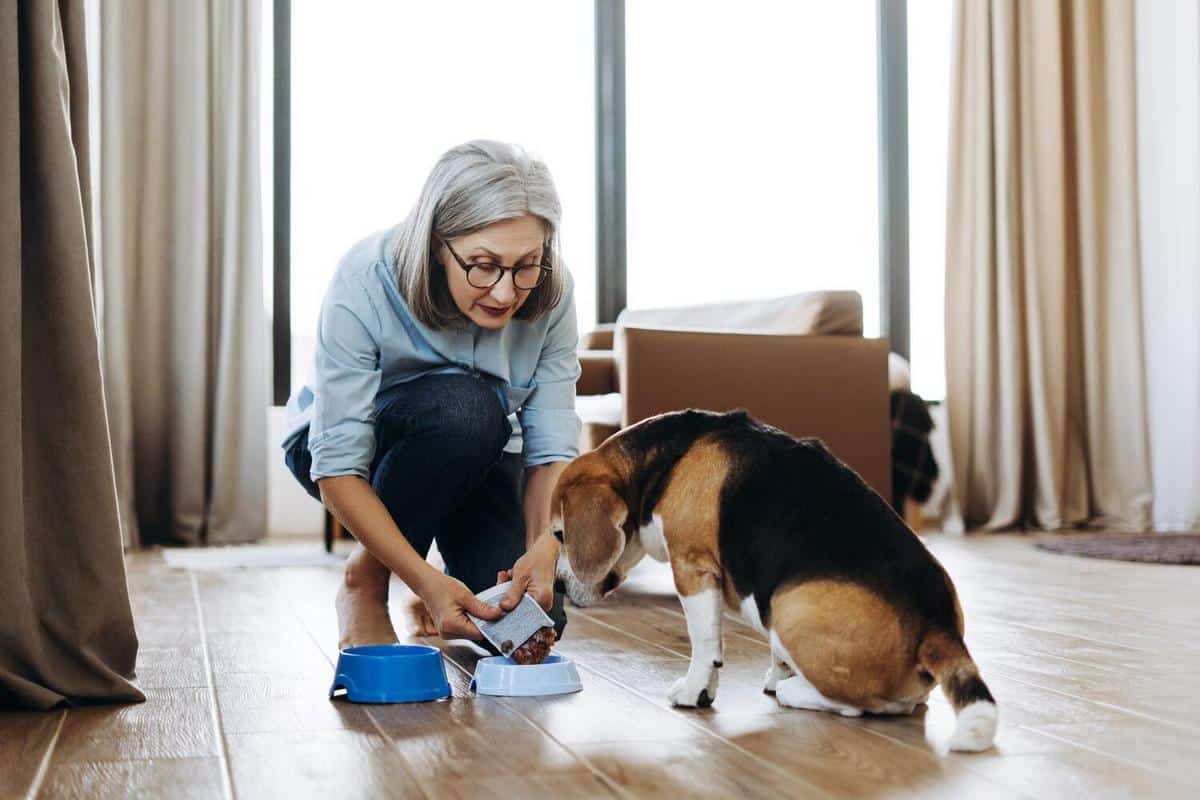
Feeding Senior Dogs: Nutritional Needs and Tips
Caring for senior dogs requires a special focus on their nutritional needs, ensuring they lead healthy and comfortable lives in their golden years. As our furry companions age, their dietary requirements evolve, demanding our attention and understanding.
As dogs grow older, they experience changes in metabolism, activity levels, and overall health, which necessitates adjustments in their diet. According to the American Kennel Club, senior dogs are typically considered to be those over the age of seven, although this can vary based on breed and size. For instance, larger breeds may enter their senior years earlier than smaller breeds.
Understanding Senior Dog Nutrition
Senior dogs often require fewer calories due to decreased activity levels, but their need for high-quality nutrients remains crucial. Dr. Julie Buzby, a veterinarian, emphasizes the importance of a balanced diet rich in protein, healthy fats, and essential vitamins. “Providing a diet that supports joint health and maintains a healthy weight is vital,” she notes.
Key Nutritional Components
- Protein: Older dogs may benefit from increased protein intake to maintain muscle mass. Look for easily digestible proteins such as chicken or fish.
- Fiber: A diet with adequate fiber can aid digestion and prevent constipation, common in senior dogs.
- Omega-3 Fatty Acids: Known for their anti-inflammatory properties, they can support joint health and cognitive function.
Research Findings
Research from the Journal of Veterinary Internal Medicine suggests that diets supplemented with omega-3 fatty acids can improve mobility in arthritic dogs. Additionally, a study published in the Journal of the American Veterinary Medical Association found that senior dogs on a diet with antioxidants showed improved memory and learning ability.
Tips for Feeding Senior Dogs
- Consult Your Veterinarian: Before making any dietary changes, discuss your dog’s specific needs with a vet.
- Monitor Weight: Regularly check your dog’s weight to ensure they’re not gaining or losing excessively.
- Choose Age-Appropriate Food: Opt for senior dog food formulas that cater to lower calorie needs while providing essential nutrients.
Consider adding joint supplements to your senior dog’s diet to support mobility and reduce discomfort from arthritis.
Sample Diet Plan
| Meal | Ingredients | Benefits |
|---|---|---|
| Breakfast | Chicken & Brown Rice | High protein and fiber |
| Snack | Carrot Sticks | Low calories, high fiber |
| Lunch | Salmon & Sweet Potato | Omega-3s and antioxidants |
| Dinner | Turkey & Quinoa | Lean protein and fiber |
| Treat | Blueberries | Rich in antioxidants |
| Supplement | Glucosamine | Supports joint health |
| Water | Fresh Water | Essential for hydration |
| Probiotic | Yogurt | Supports digestion |
FAQs
How often should I feed my senior dog?
Most senior dogs benefit from two smaller meals a day to aid digestion and prevent hunger between meals.
Can I give my senior dog supplements?
Yes, supplements like glucosamine and fish oil can be beneficial, but always consult your vet first.
Feeding your senior dog requires thoughtful consideration of their evolving nutritional needs. By staying informed and proactive, you can ensure your furry friend enjoys a happy, healthy, and comfortable life well into their senior years. Remember, your veterinarian is a valuable resource in tailoring a diet specific to your pet’s individual health requirements.


